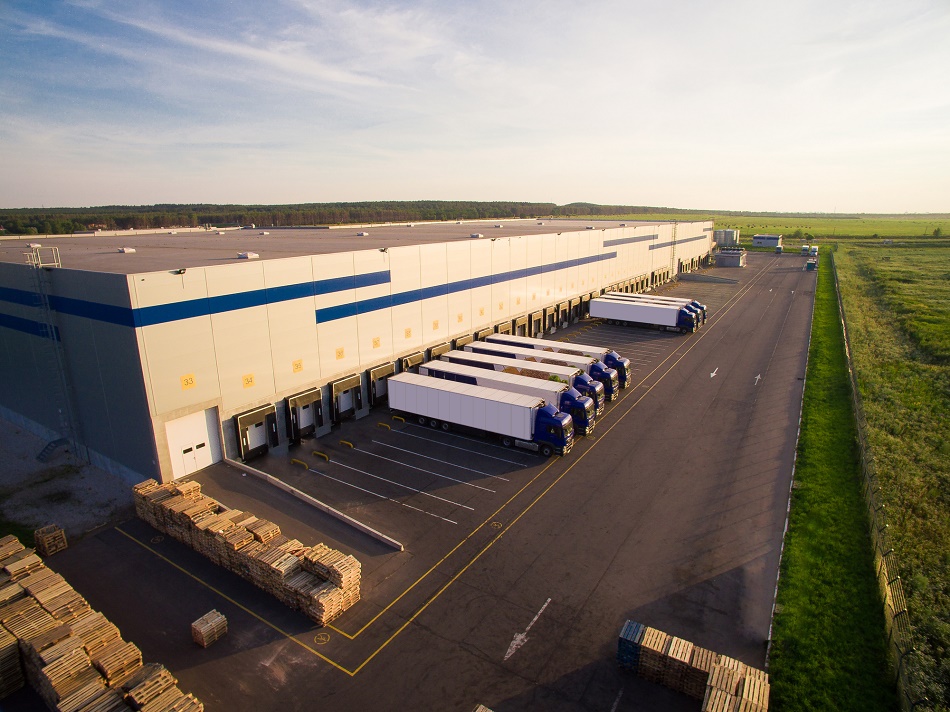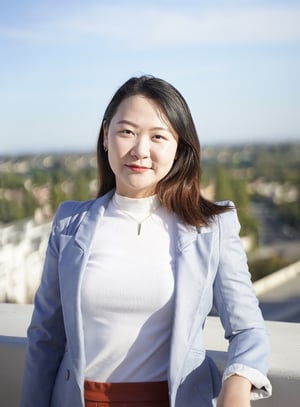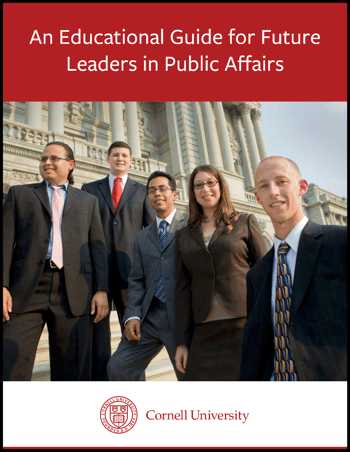How I'm Using My MPA to Develop Autonomous Driving Technology

Vivian Sun, an alum of Cornell's MPA program, is currently serving as the head of public relations at TuSimple, a San Diego-based startup that focuses on developing autonomous trucks.
In her below interview, she gives a thought-provoking look at how getting an MPA and concentrating in International Development prepared her to succeed in a rapidly-changing, competitive industry — that of autonomous driving technology.
 Since leaving CIPA, where has your career taken you?
Since leaving CIPA, where has your career taken you?
After leaving CIPA in 2016, I was eager to explore new and exciting opportunities. Through industry connections, I was introduced to Dr. Xiaodi Hou, the founder of TuSimple. I was immediately captivated by the company’s values and their vision. They have the remarkable goal of developing the world’s first self-driving semi-trucks – 18 wheelers! Inspired by the company’s vision and excitement, I jumped at the opportunity to work with Dr. Hou and his team of industry and technical experts. Within a week of meeting Dr. Hou, I took a huge leap of faith and moved all my belongings to San Diego to embrace the new opportunity.
I immediately recognized that the field of autonomous driving offered so much potential for personal and professional development. I knew this could be an arena I could immerse myself in. In the past few years I have become an industry expert in artificial intelligence (AI), automation, trucking and the automotive industry. Today, I lead public relations for TuSimple to shape the company's industry leadership position.
As part of my public relations duties, I travel around the US to give keynotes and/ or presentations to industry members. My role is to educate the industry about the positive impact of automation. Given my educational and professional background, this industry is a very exciting and non-traditional path for me.
Can you describe what your day-to-day work looks like? Your company has had incredible growth in just a few years? How did you facilitate that growth?
As employee number eight and the first non-technical hire, I was in charge of building the company image, brand, and public relations from the ground up. But as the company experiences exponential growth, new challenges and projects are emerging every day. During various stages of the company’s growth, I have been tasked with projects that have never been done before. Early on, for example, since California’s legislation on driverless trucks was so restrictive, we had to expand our footprint to another state to develop a driverless fleet facility. I was tasked with locating a new state with lenient legislation for autonomy. I had to be able to justify the total addressable market (TAM) to be appealing for deploying driverless trucks. It was a rigorous process, but I was able to convince the board and the company to expand into Tucson, Arizona. We effectively doubled the team size over the course of a year. The experience and the lessons I gained from the collaborative Capstone project from CIPA has certainly helped me a lot throughout the process.
As part of TuSimple’s executive team, I am involved in big picture strategy planning, charting organizational milestones to generate a PR schedule, and facilitating fundraising discussions with major announcements. But I am also closely involved in external communications with various federal departments that are responsible for drafting legislation for autonomy and establishing key relationships with press and media partners.
What are the greatest challenges that you or your company face as you move forward with plans to make driverless technology a reality?
One of the greatest challenges that we face is the lack of standardized operating procedures in the industry. Companies that are developing autonomous driving technology should and must agree to a set of safety standards that they can prove and abide by. At TuSimple, we are conducting millions of miles of simulated and real-world driving to ensure the safe operation of our trucks. We are also working proactively with law enforcement, government agencies, and safety bodies to provide transparent testing.
Another challenge would be the public debate on the future of the workforce. As of 2019, the official statistics suggest that the U.S. has a driver shortage of 60,000 for class-8 trucks. It is the duty of the companies that are developing driverless technologies to educate the public that the driverless solution will bring positive impact to the industry. Another part of their duty is to ensure a smooth transition for existing drivers. For example, TuSimple recently launched an autonomous vehicle driver certificate program for certified truck drivers in conjunction with Pima Community College in Tucson, AZ to equip them with relevant knowledge and skills to expand their roles in this new and rapidly growing industry.
What are the most rewarding aspects of your career/work?
On a professional level, playing a role in an emerging industry like self-driving trucks is very challenging but yet rewarding because it unites leaders from different sectors and gets them excited. At TuSimple, I get to build new partner ecosystems and a completely new business model for the future of trucking. I enjoy working with OEMs, Tier 1s, suppliers, shippers, and fleet managers as they figure out how to make autonomy work for their businesses. As autonomous technology begins to dramatically change these very traditional businesses, I love creating new opportunities in each part of a newly evolving supply chain.
On a personal level, one of the rewarding aspects of my career would be the opportunity to educate the public with the positive impact of automation/artificial intelligence. For example, in the healthcare industry we’re already seeing AI being utilized to benefit human health with improved image analysis, information exchange, and even scheduling. AI improves our lives and has the potential to transform the negative aspects of work, such as tasks that require tedious repetition and labor, into positive ones through efficiency and safety. And self-driving technology will provide similar benefits.
When you were at CIPA, had you already developed an interest in driverless technology or was that something you developed after joining TuSimple?
Throughout my career, I have always believed in catching the wave. It is crucial to join a rising industry and become an expert quickly to catch the growth.
I think entering a growing industry is more likely to position you for future opportunities. For this reason, I looked into opportunities to join an up-and-coming sector and found a great one – specifically transportation and self-driving vehicles powered by AI.
How has your MPA education prepared you for your current career?
I learned how to work with government that helps my government affairs work at TuSImple. These are two examples for how my MPA education has prepared me for my current role.
- Capstone project with the Central American Bank in Honduras:
The scope of the project was to help introduce a communication platform to a remote location with no immediate access to professional health care. With the integration of the platform, patients could seek world-class, professional medical advice from renowned doctors all around the world. From this project, I learned how to establish and implement communication channels between various stakeholders. - Evaluation project with the Government Accountability Office (GAO):
I was responsible for evaluating the low retention rate of recruits hired through the Presidential Management Fellows (PMF) program. While engaged with this project, I learned the organizational structure of government agencies, how to navigate through various departments, and how to communicate with government agencies. This experience has been invaluable to me in my government affairs work at TuSimple.
What advice do you have for current CIPA students who are interested in pursuing a career in your industry?
Don’t be afraid to tout your strengths to others and network as much as possible with leaders in your field of interest. Keep learning! You must acquire as much information as you can throughout your working life to stay current in a rapidly changing business environment and industry. Continuing to learn and pushing yourself will help you develop confidence when establishing yourself in any field.
CIPA’s motto is “training leaders, improving lives.” How have you used your success to improve lives?
I am involved in organizations that prioritize advocacy in the field, such as participating as a member of the American Trucking Association’s environmental committee and public policy committee. These platforms allow me to have a voice on important issues and inform the public as well as the industry on autonomous trucking technology and issues. I want to continue to expand my participation in organizations like this with the goal of improving the world we live in.
I also make conscious decisions regarding the company I work for and the industry I am in. I want to make sure there’s a bigger cause that we can bring to the world with the technology. TuSimple prioritized tackling major issues within the trucking industry as well as society as a whole given transportation directly affects people’s everyday lives. In that respect, the self-driving technology we are creating offers a number of benefits to the world: making roads safer, making trucks more efficient and the source of less pollution, and producing economic benefits with fuel savings.
Women are currently a minority in your industry. What advice do you have for other women who hope to break into the AI space?
- Be visible: I believe women should always actively look for opportunities to shine light on our achievements and capabilities. Find opportunities to present yourself in front of your company and then go to bigger stages in your industry.
- Take credit for your work: Women don’t like taking credit for their projects or achievements. We play vital roles as leaders and team members, and we should be proud of our contributions.
- Communicate: I believe that communication is the most important soft skill in career development. Expertise in your field is the foundation of all your work, but it is equally necessary to be able to persuasively articulate your ideas, thoughts and needs, particularly in a team setting.
Concentration — International Development Studies:
MPA students at Cornell University have the opportunity to pick one of eight concentrations. MPA students concentrating in International Development Studies are concerned with policy issues, policy formulation, and implementation in developing countries. This concentration helps students understand the broad and specific contexts in which international development decisions are made.
Students can explore international development concerns using a range of interdisciplinary perspectives and methods including anthropology, demography, economics, regional planning, sociology, biotechnology, and legal studies.
If you're passionate about the field of public affairs and if you want to learn more about how getting an MPA at Cornell University will enable you to make a real difference in the lives of others, we encourage you to request more information today!



